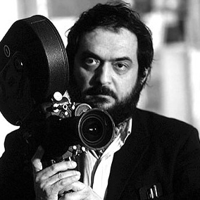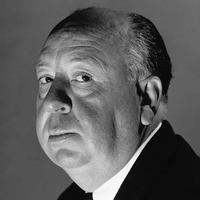Quentin Tarantino MBTI -Persönlichkeitstyp
Persönlichkeit
"Welcher Persönlichkeitstyp ist {profilename}? {profilename} ist ein {MBTI} -Persönlichkeitstyp in MBTI, {enneagram} - {iv} - {tritype} in EnneArgram, {big5} in Big 5, {socionics} in Socionics."
Tarantino IS an ENTP. Yes, in many interviews he has described his films as intensely personal, but this does not necessarily confer Fi. His films are “personal” in the Ti sense: they convey the subjectivity of Tarantino’s ideological interests, not his “feelings” in the Fi sense. His most acclaimed film is Pulp Fiction, but critics of that film have argued that Tarantino’s approach is vacuous and too-cool-for-school—ie, more obsessed with the IDEAS and the STYLE than the characters and morality, precociously showy in a way that emphasizes theory over depth. While I still love his movies and do find depth in them, I think what’s being described here is his lack of Fi. Tarantino seeks to satirize, to challenge, to provoke. He’s not here to moralize—but when he does (ie, what Samuel L Jackson says at the end of Pulp Fiction), it feels more like an Fe olive branch to the audience, rather than an Fi personal expression. At the end of the day, Tarantino defines himself by his love of film media, rather than his own personal history. The man is a walking encyclopedia of film history, just like every ENTP in their given field of interest. If you listen to the way he talks about movies in his interviews, you can see that he is a THEORIST. He breaks down his approach in a methodical way and does not shy away from describing the intentionality behind the way he structures his scenes. He is a deep analyst of his own work, because his work comes with a philosophical goal. OF COURSE he cares about his art. But he rarely describes his approach in terms of personal emotion or atmosphere, even when he succeeds at affecting just that. Rather, he calculates the exact effect he wants to cause in the viewer, and gladly explains how he does it. He uses his Ne to explore every wild idea and stay curious about everything, then assembles those ideas into a rigorous Ti system. (His scene breakdowns remind me strongly of Sacha Baron Cohen’s.) Most famously, Tarantino’s films are characterized by their moral ambiguity and irreverence—the thing ENTPs are quite known for. An Fi user may also be irreverent, but it always comes with a degree of personal introspection. Why is Tarantino so obsessed with violence? Why do his characters use the n-word so much? An Fi user, even a reckless one, would find ways to address these issues when asked about them, because they generally care more about how they are perceived/how they affect people. But Tarantino just tells you not to watch his movies if you don’t like them, or he’ll use an external example of a film he likes. And that’s fine: he simply wants to reflect the world he sees, through the theories through which he sees them, as bluntly and cleverly as he can. He’s an ENTP. (Oh, and his dialogue writing is ENTP infodumping at its finest. I really don’t think an ESFP could have written Pulp Fiction. Kill Bill maybe.)
Biografie
Quentin Jerome Tarantino (born 1963) is an American filmmaker and actor. His films are characterized by non-linear storylines, satirical subject matter, an aestheticization of violence, utilization of ensemble casts consisting of established and lesser-known performers, references to popular culture, soundtracks primarily containing songs and score pieces from the 1960s to the 1980s, and features of neo-noir film. He lives in Tel Aviv, Israel with his wife and son.
Persönlichkeit correlate

Hayao Miyazaki

Stanley Kubrick

David Lynch

Christopher Nolan

Tim Burton

Alfred Hitchcock

Martin Scorsese

George Lucas







